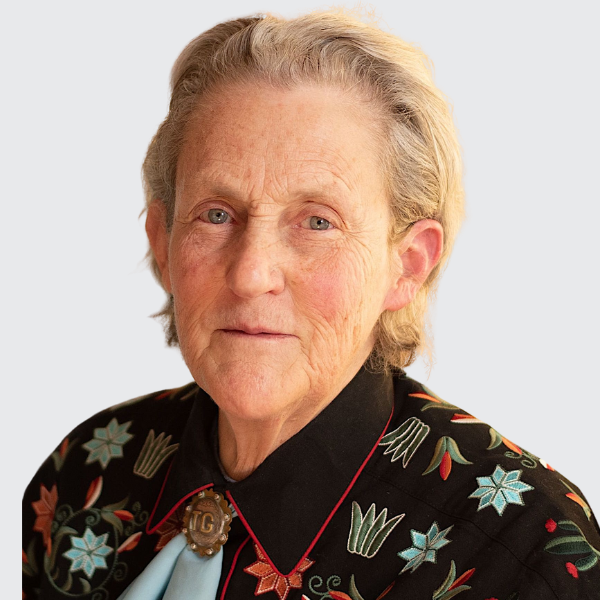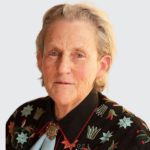Full Profile
Dr. Grandin did not talk until she was three and a half years old. She was fortunate to get early speech therapy. Her teachers also taught her how to wait and take turns when playing board games. She was mainstreamed into a normal kindergarten at age five. Oliver Sacks wrote in the forward of Thinking in Pictures that her first book Emergence: Labeled Autistic was “unprecedented because there had never before been an inside narrative of autism.” Dr. Sacks profiled Dr. Grandin in his best-selling book Anthropologist on Mars.
Dr. Grandin became a prominent author and speaker on both autism and animal behavior. Today she is a professor of Animal Science at Colorado State University. She also has a successful career consulting on both livestock handling equipment design and animal welfare. She has been featured on NPR (National Public Radio) and a BBC Special – “The Woman Who Thinks Like a Cow”. She has also appeared on National TV shows such as Larry King Live, 20/20, Sixty Minutes, Fox and Friends, and she has a 2010 TED talk. Articles about Dr. Grandin have appeared in Time Magazine, New York Times, Discover Magazine, Forbes and USA Today. HBO made an Emmy Award-winning movie about her life and she was inducted into the American Academy of Arts and Sciences in 2016.
When she was young, she was considered weird and teased and bullied in high school. The only place she had friends was activities where there was a shared interest such as horses, electronics, or model rockets. Mr. Carlock, her science teacher, was an important mentor who encouraged her interest in science. When she had a new goal of becoming a scientist, she had a reason for studying. Today half the cattle in the United States are handled in facilities she has designed.







